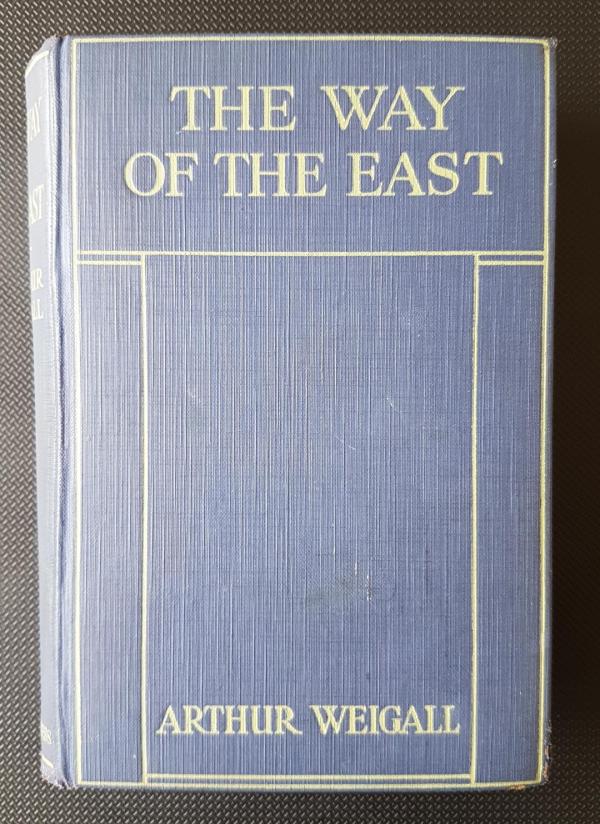III. THE ENGLISH ARCHAEOLOGIST, ARTHUR WEIGALL, AND HIS ANGLO-COPTIC ROMANTIC NOVEL, THE WAY OF THE EAST: THE NOVEL

I have promised the reader to read, and write about, the novel, The Way of the East, by the English Egyptologist, Arthur Weigall. He wrote it in 1924. It was published in the same year in Toronto, Canada, by The Ryerson Press, in some 318 size A5 pages. It is written in 3 parts and 26 chapters. The main protagonists are Colonel Robert Romance, an English officer in the British army in India; and a Coptic girl, Miriam Marcos, daughter of the rich Governor of Ismuay,[1] in Upper Egypt. Miriam’s mother had died at birth, and her father sent her to England, at the age of 5 years old, to receive her education there. In England she spent her life until she was in her 20s when she returned back to Egypt, having being trained in adopting the “English point of view”. Robert and Miriam fall in love, but their different races create major problems, and their love affair is used to discuss race. Does race matter? Does the colour of the skin matter? Do race and colour matter in marriage? Can training in the “English point of view” abolish racial and colour differences? Which is most important in deciding intermarriages: race, colour or culture (the “point of view”)? And if a woman from the “natives” who can be passed as white in colour and educated in the English “point of view”, like Miriam is, could be found, can an Englishman ignore her “brown” relatives and environment? Wouldn’t she bring his race and offspring down?
I read the novel twice, a few years ago and I have just finished it for the second time now. It has been a very distressing experience. Finishing it, I find my energy almost entirely sapped. The occasion of the Anglo-Coptic romance could have been used to discuss the relevant questions in a nuanced and open-minded manner, but the author has chosen to deal with it crudely and in a biased and a most hateful way. The degree of racism, white supremacism and ultra-nationalistic sentiments expressed in the novel, by many of its characters and by the novelist himself, is unimaginable. The views expressed are global, and are not confined to the “brown”, “native” Copts (the writer is fine to some extent with the “white” Copts, of which Miriam is one), who are denigrated, vulgarised and disfigured in character, and portrayed in a most unfair way, but are made in regard to all “brown” peoples of the world, and particularly to the “blacks” – the “negroes” – who, according to the novel, are closer to the animal. The English race (and the American [of course, Weigall’s wife then was American])[2] is the most superior race on earth; and England must rule the old world and its sub-ordinate races, and bring them out of darkness. I am sure every decent English man and woman – and I believe the overwhelming majority of the English people are decent – will be shocked and horrified by the views expressed in the novel today.
The novel does not rise to the level of fine literature in style or language; and there is nothing soul-uplifting, moral or entertaining in it. No wonder that it has faded into obscurity. What do I think of Weigall now? I am afraid I have found him – unexpectedly, I must say – a very nasty, nasty little man. He belongs, despite his scholarly works, to the nasty group of human beings that one can find in every nation and country across the globe, and see themselves as superior and others as inferior. It is a sad finding.
I have no energy or mood to write about the novel at the present in more detail. When I can, I will. At this stage, I just thought of sharing my thoughts in general about the novel. It may make me feel better, and may prepare the reader to when I write about the novel in detail, one day in the future as I hope to.
___________________________
[1] There is no city in Egypt by this name. Weigall says it is some 400 miles above Cairo, which makes me think he means Esna.
[2] See Part I of this series.
